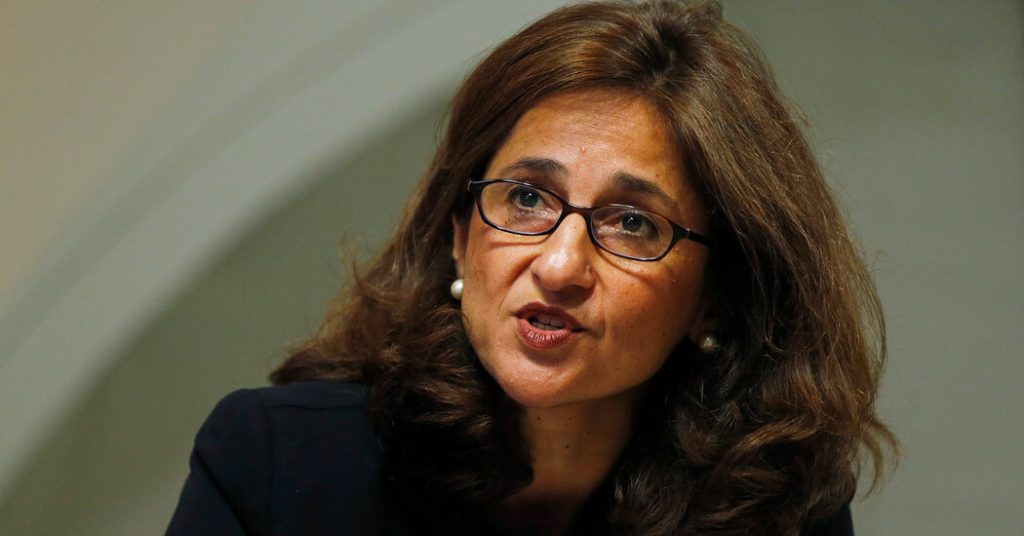Nemat Shafik, the president of Columbia University, is set to testify before a group of House Republicans who have accused the school of allowing antisemitic assaults, harassment, and vandalism on campus since the Oct. 7 Hamas attack in Israel. Columbia and Dr. Shafik have had time to prepare for the hearing, as similar allegations were brought up at a previous hearing involving other university presidents. Following that hearing, the presidents of Harvard and the University of Pennsylvania stepped down partially due to backlash over their responses.
Lawmakers will have more material to work with this time, as Columbia’s campus has experienced heated protests related to the war, with criticism coming from both pro-Israel groups and supporters of Palestinians regarding how the school has handled the situation. Representative Virginia Foxx, leading the committee, has received approximately 4,000 pages of internal information from Columbia related to the antisemitism investigation. Dr. Shafik, an Egyptian-born economist, will be accompanied by the co-chairs of Columbia’s board of trustees, Claire Shipman and David Greenwald.
One aspect to watch out for during the hearing is Elise Stefanik’s line of questioning. As the No. 4 Republican in the House and a potential vice-presidential pick for Donald J. Trump, Stefanik’s aggressive questioning at the last hearing regarding whether calling for the genocide of Jews would violate campus rules was impactful and led to resignations from the presidents questioned. Dr. Shafik’s reaction under pressure will also be a point of interest, as she has extensive experience dealing with complex situations but has not faced a highly partisan congressional committee before.
The larger context of the questioning revolves around academic freedom and the debate over what can be taught in American classrooms and how much government influence is appropriate. Some of Dr. Shafik’s supporters are hopeful that she will defend the right of students and faculty to express unpopular or controversial views. The hearing comes at a time when universities are under scrutiny for how they handle sensitive topics and conflicts, and Dr. Shafik’s response may have implications for the broader discussion around freedom of expression on campus.
Overall, the upcoming hearing with Dr. Shafik will delve into allegations of antisemitism at Columbia University and how the school has handled related incidents. Lawmakers will have significant material to use during the questioning, and Dr. Shafik’s reactions and responses will be closely observed. The debate over academic freedom and the role of government in university affairs will also play a significant role in the hearing, with supporters hoping that Dr. Shafik will defend the rights of students and faculty to express diverse viewpoints. The outcome of the hearing may have broader implications for the ongoing discussions around freedom of expression and sensitivity on college campuses.


